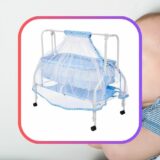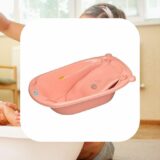Navigating the New Normal: Post-Hospital Tips for New Parents in India
When you’re holding your little bundle of joy for the first time, it’s easy to forget that the journey has just begun. Leaving the hospital and stepping into your home as a new parent can be as daunting as it is exciting. There’s a lot to consider: from understanding when to call the doctor to setting up your home to welcome the new member of your family. This comprehensive guide is here to help you traverse the post-hospital haze with ease and confidence, with expert advice from Indian pediatric specialists and insights into the latest childcare studies.
Bringing a newborn home is a momentous occasion, and it comes with a steep learning curve. From deciphering cries to managing sleep schedules, every parent wants to do the best for their baby. However, with a flurry of advice coming your way, it’s essential to sift through and heed the guidance that’s backed by experts and evidence. In this extensive article, we’ll cover all you need to know as you embark on this beautiful, if sometimes bumpy, ride of parenthood.
The First 48 Hours: Setting the Foundation
The initial days after being discharged from the hospital are critical for both the baby and the parents. It’s a time for bonding, healing, and adjusting to a new life rhythm. Preparing your home environment to be safe, serene, and baby-friendly is the cornerstone of this phase. It’s also when you should start establishing a basic routine for feeding, sleeping, and baby care.
From the color of the nursery walls to the temperature of the bathwater, everything makes a difference. Ensuring that the baby’s room is free of noise pollution, with a comfortable temperature and soft lighting, can aid in better sleep for your newborn. Meanwhile, keeping a record of feeding times, diaper changes, and sleep patterns can help you quickly establish a routine that works for your family.
Creating a Baby-Safe Environment at Home
The safety of your baby is paramount. Every corner of your house should be looked at through a lens of ‘baby proofing’. Securing furniture, ensuring the baby’s crib meets safety standards, and keeping small objects out of reach are just the start. It’s about creating an environment where your baby can explore without risk as they grow.
Additionally, maintaining hygiene is more critical than ever. Regular hand washing, sanitizing surfaces, and using baby-safe cleaning products can prevent infections. Remember, a clean space is a safe space for your little explorer.
Adjusting to Baby’s Sleep and Feeding Schedule
Newborns don’t come with an instruction manual, and their sleep and feeding schedules can be particularly perplexing. It’s normal for babies to wake up multiple times during the night for feeding in the first few months. Patience is key, as is the willingness to adapt and learn the difference between hunger cues and other needs.
When it comes to feeding, whether you choose to breastfeed or formula-feed, ensure that you’re following sterile practices and feeding your baby on demand. Consulting with a lactation expert can be invaluable for new mothers struggling with breastfeeding.
Health and Wellness: When to Seek Help
Post-hospital baby care isn’t just about maintaining a routine; it’s also about being vigilant and responsive to your baby’s health. Knowing when to worry and when to relax is a delicate balance, informed by the ability to recognize signs that indicate it’s time to consult a doctor.
Every sneeze or hiccup can seem alarming, but understanding common symptoms and what they could potentially signify helps in deciding when to seek medical advice. Establishing a relationship with a pediatrician who understands your concerns and provides reliable advice is crucial.
Recognizing Signs of Common Illnesses
In the first year, your baby’s immune system is still developing, making them more susceptible to colds, coughs, and allergies. Some symptoms are part and parcel of growing up, but others, like persistent fever, unusual lethargy, or refusal to feed, may require a doctor’s attention.
Being informed about vaccinations, common illnesses, and their symptoms can prepare you for these situations. Remember, timely medical intervention can be a game-changer in ensuring your baby’s health and well-being.
Vaccination and Regular Check-Ups
Regular check-ups with a pediatrician are non-negotiable. These visits are not just for when your child is ill; they are crucial for preventive healthcare as well. Vaccinations, growth tracking, and developmental assessments are all part of these routine visits.
Keep a vaccination chart handy and follow it diligently. In India, where weather conditions can vary drastically, it’s also important to discuss with your pediatrician any additional vaccines that might be necessary.
Nourishing Body and Mind: Postnatal Care for Mothers
While the baby’s health takes center stage, new mothers must also take care of their physical and mental well-being. The postnatal period involves recovery and adaptation to the new demands of motherhood, and this requires support, rest, and good nutrition.
The “Fourth Trimester” is a term often used to describe the first three months after birth. It’s a time of significant change, not just for the baby but for the mother as well. Ensuring that postnatal care is given priority is essential for the long-term health of both mother and child.
Physical Recovery and Nutrition
The body goes through a lot during pregnancy and childbirth. It needs time to heal and regain strength. Adhering to a balanced diet rich in nutrients, staying hydrated, and getting as much rest as possible (even with a newborn) is essential for recovery.
Additionally, postpartum exercises (as recommended by a healthcare provider) can help in regaining physical strength. It’s important not to rush this process and give your body the time it needs to recover fully.
Mental Health and Emotional Well-Being
The emotional rollercoaster that accompanies the arrival of a new baby is real. Postpartum depression (PPD) affects many new mothers and can manifest in various ways. Awareness about PPD and the support systems available is crucial.
Family support, counseling, and sometimes professional help can be necessary. It’s important for new mothers to understand that looking after their mental health is not a luxury, but a necessity.
Conclusion
The transition from hospital to home as a new parent is filled with both challenges and joys. By creating a safe environment, staying vigilant about health concerns, and ensuring postnatal care, you can navigate this new chapter with confidence. Remember, it takes a village to raise a child, and seeking help is a sign of strength. Stay informed, stay prepared, and enjoy the journey of parenthood.
Embracing the Journey with Love and Care
Ultimately, the post-hospital phase is about love and care in its purest form. Whether you’re perfecting your swaddle technique or learning the best lullabies, each day is an opportunity to bond with your baby and grow as a family. Trust your instincts, lean on your support system, and don’t hesitate to reach out to medical professionals when needed.
Embrace each moment, and don’t forget to take care of yourself, too. Parenthood is a marathon, not a sprint, and taking the time to adjust to your new life will only benefit you and your baby in the long run. Here’s to the beginning of an incredible journey!












